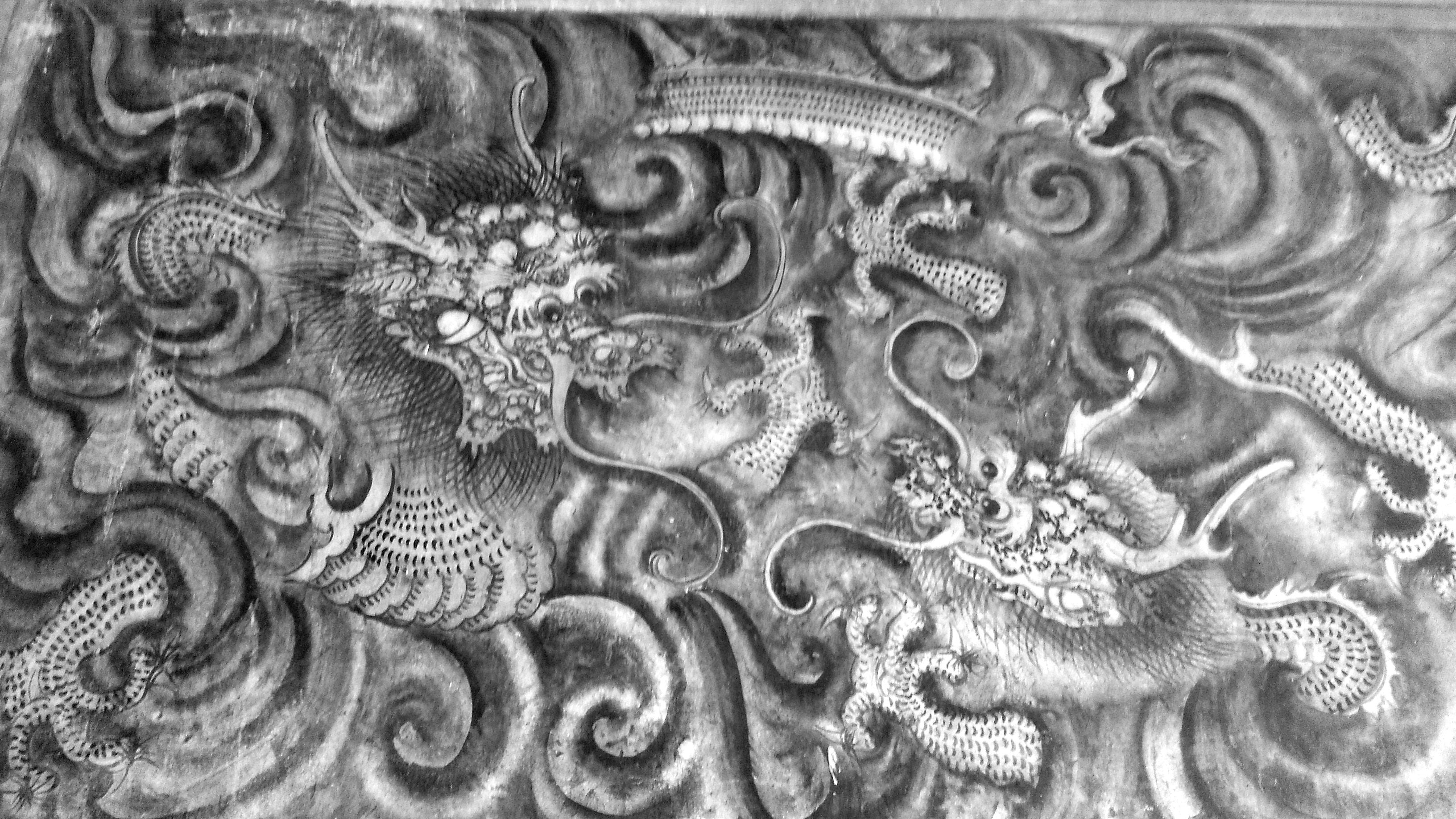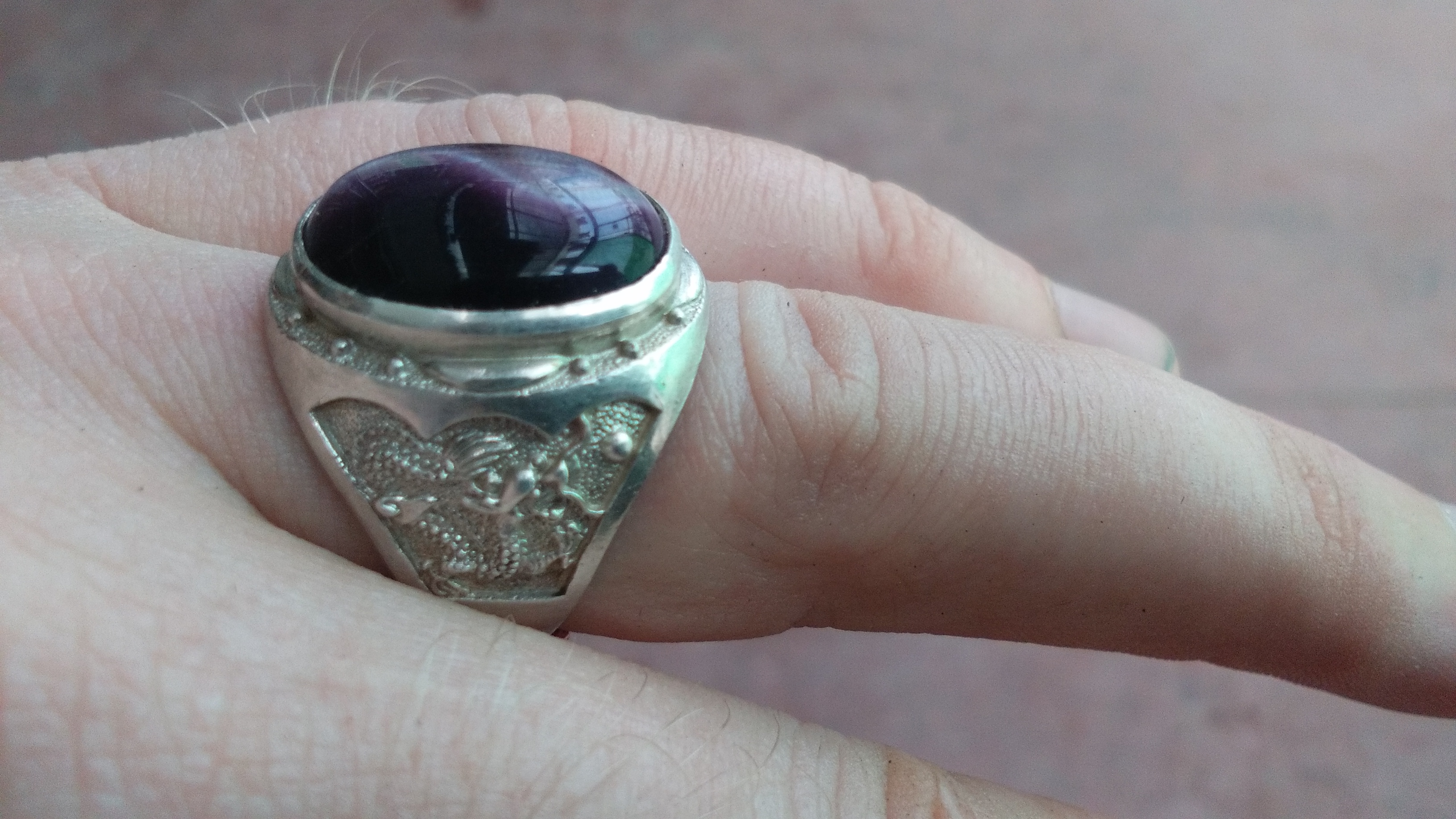Last year in Nepal we wanted to enter China from Kathmandu and cycle to Lhasa and into Laos. But the border crossing was closed due to the earthquake. Later we wanted to cross from Sikkim into China, but the border crossing was only open for Indians and Chinese. In Hanoi we were thinking about canceling Southern Laos and Cambodia and instead wanted to cycle to Shanghai and then take the ferry to Japan. We almost did that, but then changed our minds again.
At a point, where I didn’t expect I would cycle through China any more, things changed and China once again became my destination of choice. It was difficult to find a nice route, though. Of course the route from Chengdu to Lhaza or in general cycling in the mountains was my favorite idea. But I could only stay four weeks in China. This time it wasn’t a bureaucratic reason – I could easily extend the visa – but a meteorological one. Even if China was hot in July, temperatures drop rapidly soon. I also didn’t like the idea of taking a train to Tibet and then cycle for three weeks and take another train somewhere else….I had enough ferries and embassies and running around and packing and unpacking. I didn’t like the idea of a short Tibet trip inside this journey. And after all, we had seen Tibetan lifestyle in the Himalaya in Nepal and Sikkim. I just wanted to cycle somewhere in China.
So I decided to take the route through Manchuria. I soon started to like the idea of seeing just a normal part of China. No mega city, no Tibet, no typical tourist destinations. And I learned Manchuria is also pretty nice. The Great Wall was another highlight. And visiting Beijing was an important part of this journey. It is the political, historical and cultural center of China and you can pretty much feel that. I absolutely liked that. Standing on Tiananmen Square was one of the highlights of visiting Asia. The big counterfeit of Mao Zedong…it feels like looking into another epoch or watching a movie. It feels unreal.
Now I want to write a conclusion about China. Of course this is once again not possible, because like India, China is big. So I can only tell you about what I have seen and will still refer to it as China.
First, I was wrong about the dudes. I only saw dudes when I entered and when I left China. And one dudess on TV.
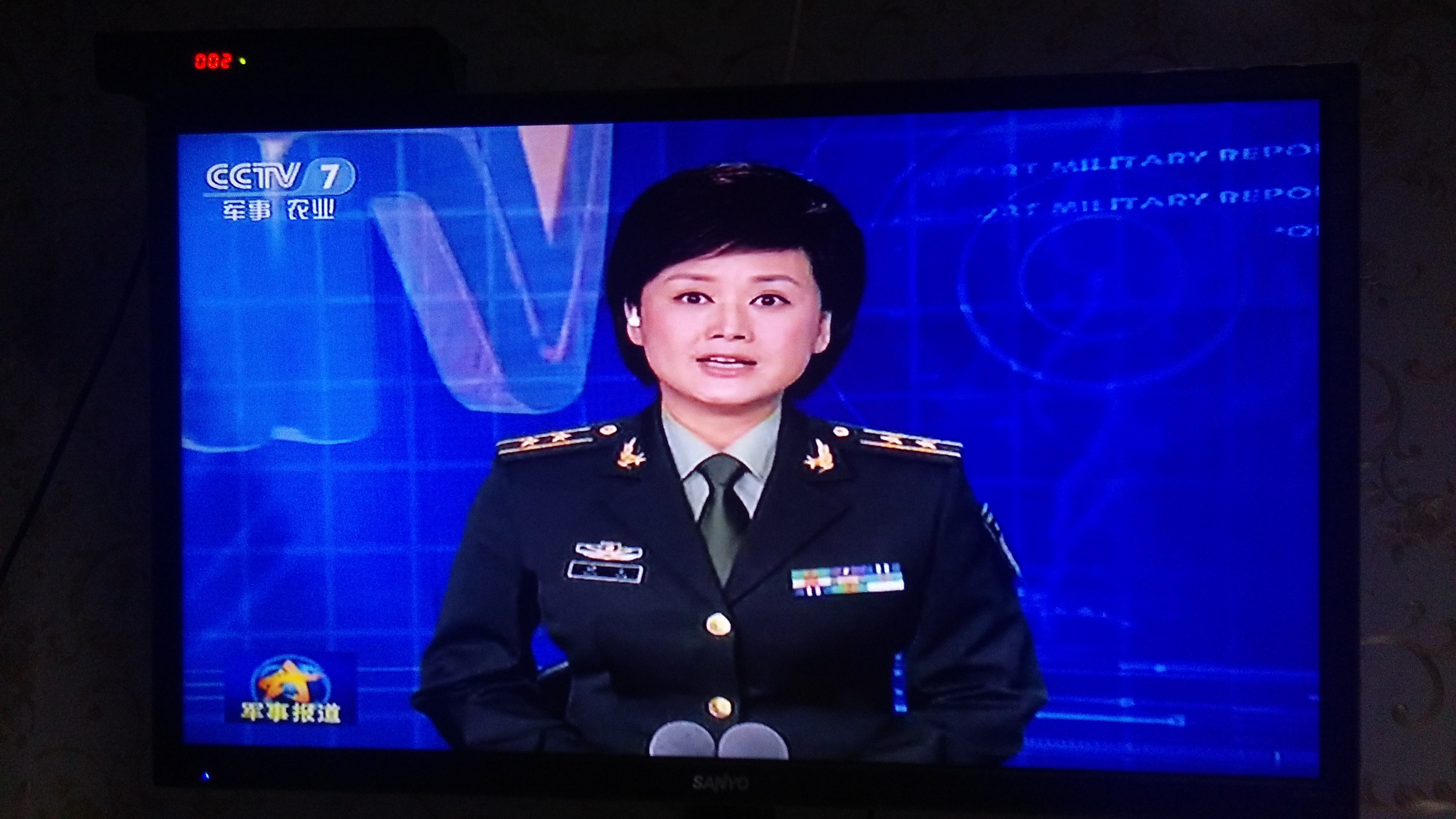
Apart from that I never had trouble with any police officers, even though many told me the Chinese officials don’t like cyclists. One evening I arrived in Heishan and had booked a cheap room. But it turned out, they couldn’t host foreigners, since you need a special licence for that. We went to the police just in the next building and the police officers took me to a hotel and made sure I get the police discount, which was less than half the normal price.
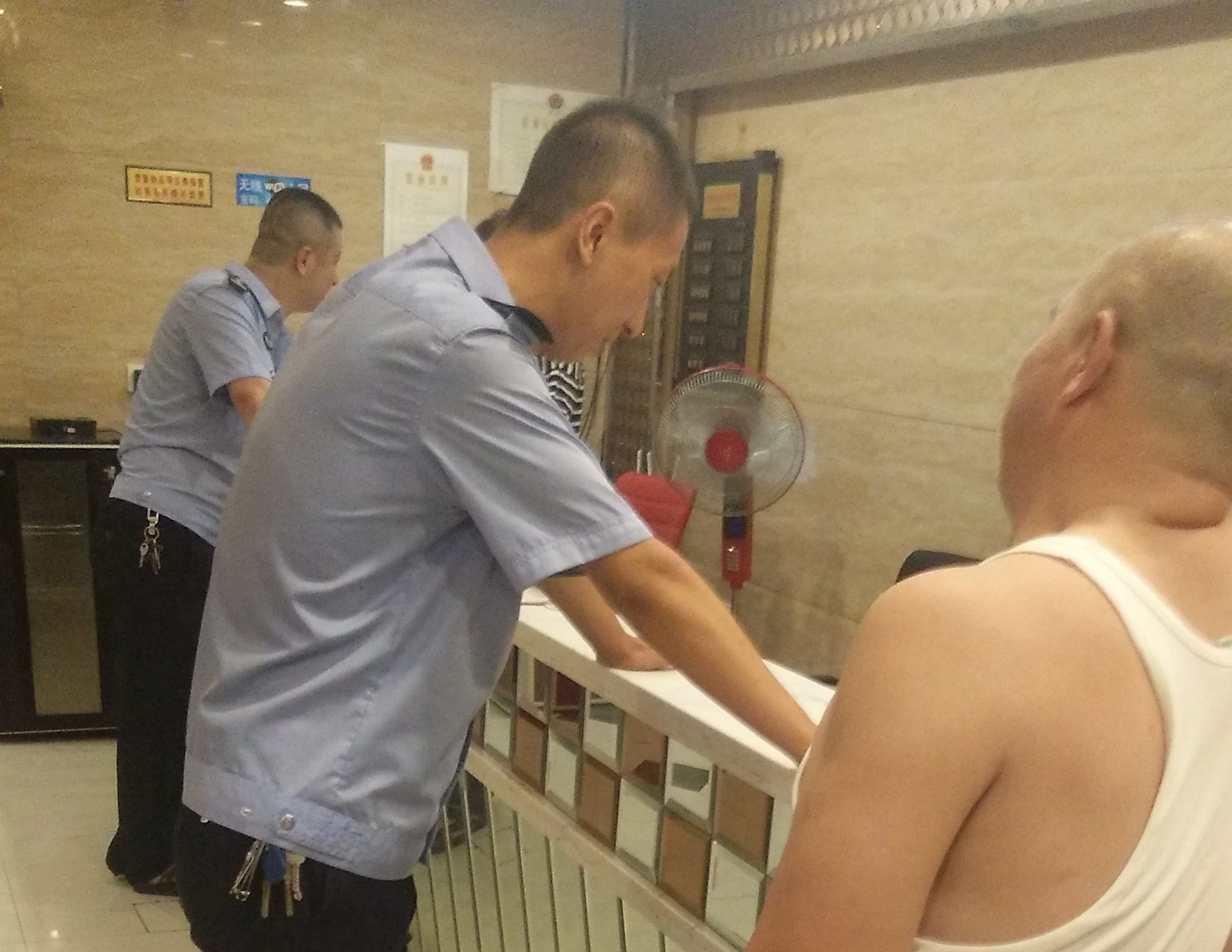
Finding a hotel was sometimes tricky. Most don’t have a licence to host foreigners. But those who have are at least double the price. Sooner or later I always found a hotel that didn’t care about the licence.
The Chinese invited me a lot. Usually not to stay at their homes, but for dinner or lunch or for a beer or some fruits. The first four days in China I never had to pay for dinner.
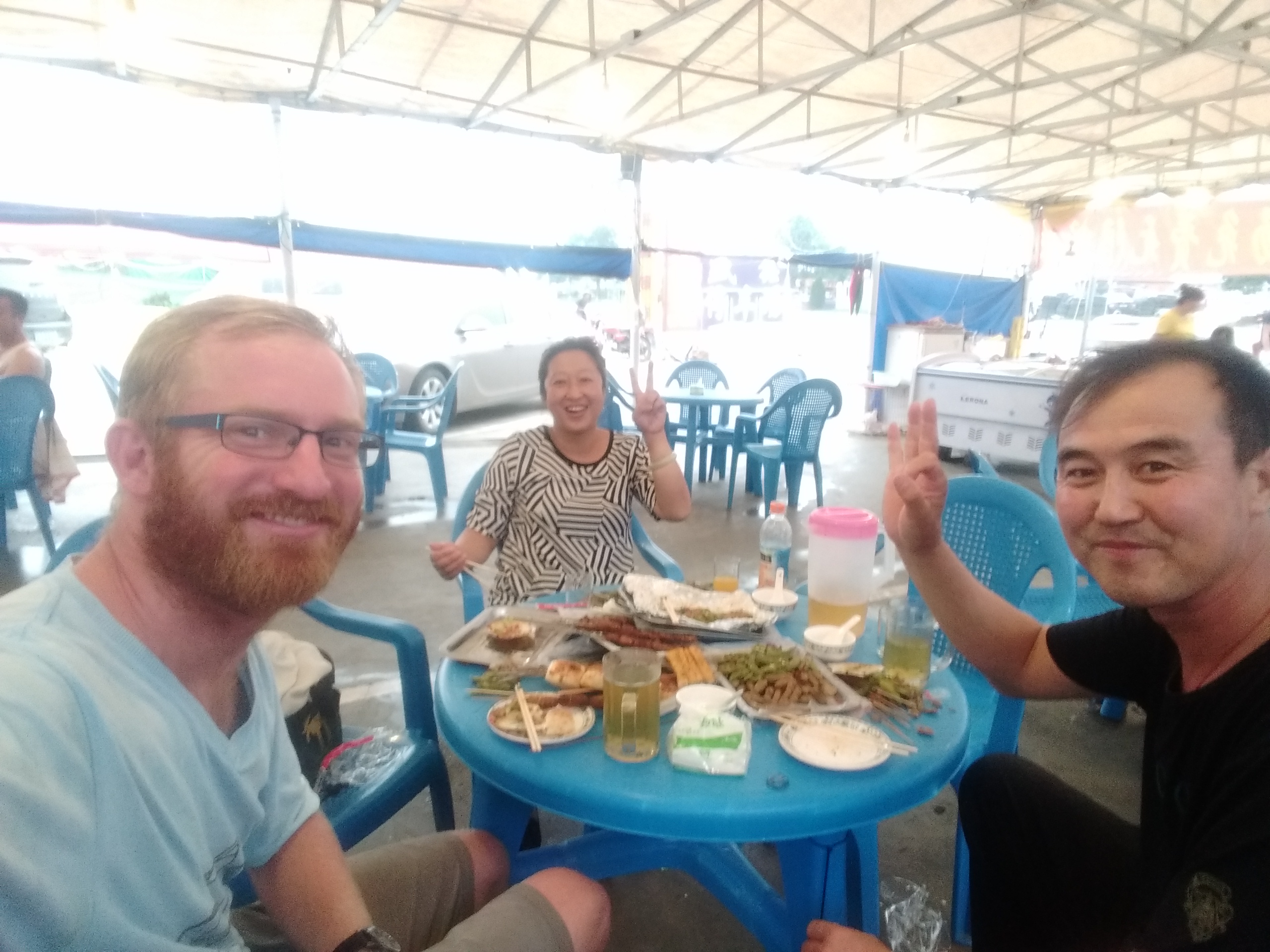
Before I entered China, I heard the Chinese are rather harsh. But my experience was different. The Chinese were very generous. Like in Iran, but without the „come to my home“ finish. I only once was invited into a private home in Manchuria. It was very basic and they had no shower, so they felt embarrassed to host me. It’s always a shame when that happens. I think if they can live like that, I can as well. In all of Central Asia there was usually no shower. That’s the way it is. It’s not their fault and a clean bucket can be much better than some „bathrooms“ we have seen on this journey.
Being Matt Damon was usually nice, even though it sometimes got annoying when people just put their baby on my lap to take a picture while I was eating. But usually I liked the Chinese attitude. They are not reserved like in South East Asia or Japan. They are rather open and direct. And I could sense a certain confidence. Maybe a confidence only the biggest nation in the world can afford. It seems like they don’t give a damn about what is going on around them. And I mean in a positive way. The world might have a certain image of China, but they just don’t listen. They know exactly who they are. A bit like this stereotype of a US citizen. After all China – like the US – is so big that everything „around“ is very far away: They have (half of) Mount Everest, the Gobi desert, mega cities like Shanghai, capitalistic giants like Hong Kong, lovely green mountains and rivers in Hunan and beaches on end. They are a super power and I think you can feel this part of their collective unconscious. Their style and the way they behave felt confident.
Ten Lions
Well, thanks. Chinese is a difficult language. „Shi shi“ means „thank you“. That’s easy, right? No! I probably always said „ten lions“ or „stone den“ when I wanted to say „thank you“, because pronunciation is everything. You don’t believe me? Hear for yourself:
It’s the Chinese equivalent of the Rhabarberbarbara.
One evening I tried to explain where I am from. Germany? Never heard of. I showed the German flag. No idea. Berlin? Never heard of. Angela Merkel? Never heard of. I hesitated, but finally tried the name of a world famous German politician and drew a symbol he liked to use. I was desperate, you know? The symbol of course has a different meaning in China and for the record, the Chinese pronunciation is „Shitler“, which is hilarious. I eventually found the international sign for Germany.

Suddenly everybody was like: „Aaaah, Deh-gwa!“
From then on I always proudly said „Deh-gwa“, whenever hotel staff tried to find out my country by looking at my passport. But nobody understood me. I probably said „squirrel helmet“ or „snail wedding“. I don’t know. Usually after a while someone said: „Aaaah, Deh-gwa!“.
Yeah. Wasn’t that what I just said ten times? Apparently not.
The USA or Russia must be „Meh-gwa“, because they always assumed I am from „Meh-gwa“. So this was quite unique in all of Asia, because usually country or city names are understood. But even Nepal, nobody knew. They have a different name for it apparently. I tried to explain with „Mt. Everest“, but of course they have a different name for that, too. Bangkok, Thailand, Japan, Korea. They all have a different name in Chinese. I later found out, Thailand is easy: „Thai-gwa“ and Mongolia is „Mong-gwa“. I mean even the Chinese word for China isn’t even close to „China“. It’s „Zhong-gwa“.
Some people speak English, but only very few. But that usually doesn’t keep them from talking to you. They can have a whole conversation without you responding. It’s a bit like in France. They just assume you speak their language. Why should you be here otherwise? Others switch to pantomime. That’s also very funny, because you feel like you are deaf. They just make „mhmmmhmm“ sounds like it is forbidden to talk. However, the pantomime is not limited to China. You find them everywhere once in a while.
But one thing I liked best: As soon as they notice I cannot speak Chinese, they get the crazy idea, that I just don’t understand the language. Then they assume, that I of course can read the signs. After all, the signs have a meaning unlike our letters. So they write down things. I usually then also write down things like „I go to Beijing“. And then they realize, that the language barrier is damn high. And they are really surprised. Once again, it’s a huge country, the next language is far away and completely unimportant for them. Neighboring countries have to learn Chinese. It’s usually not the other way around.
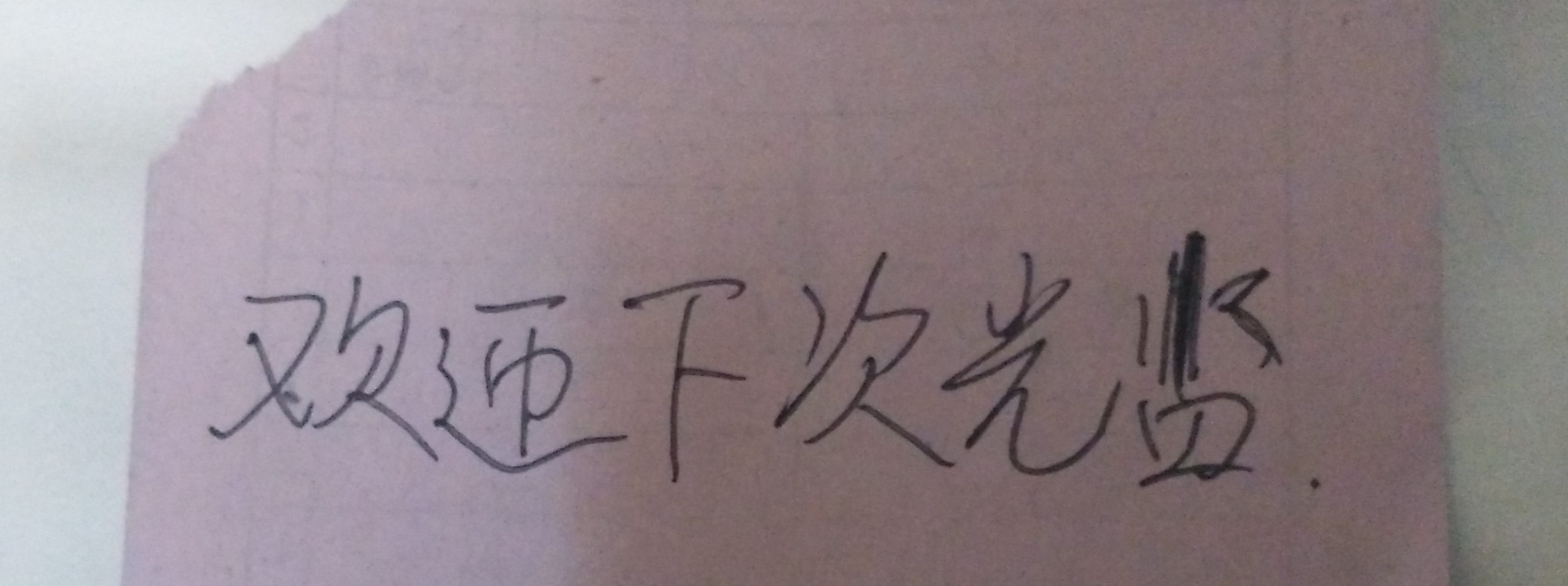
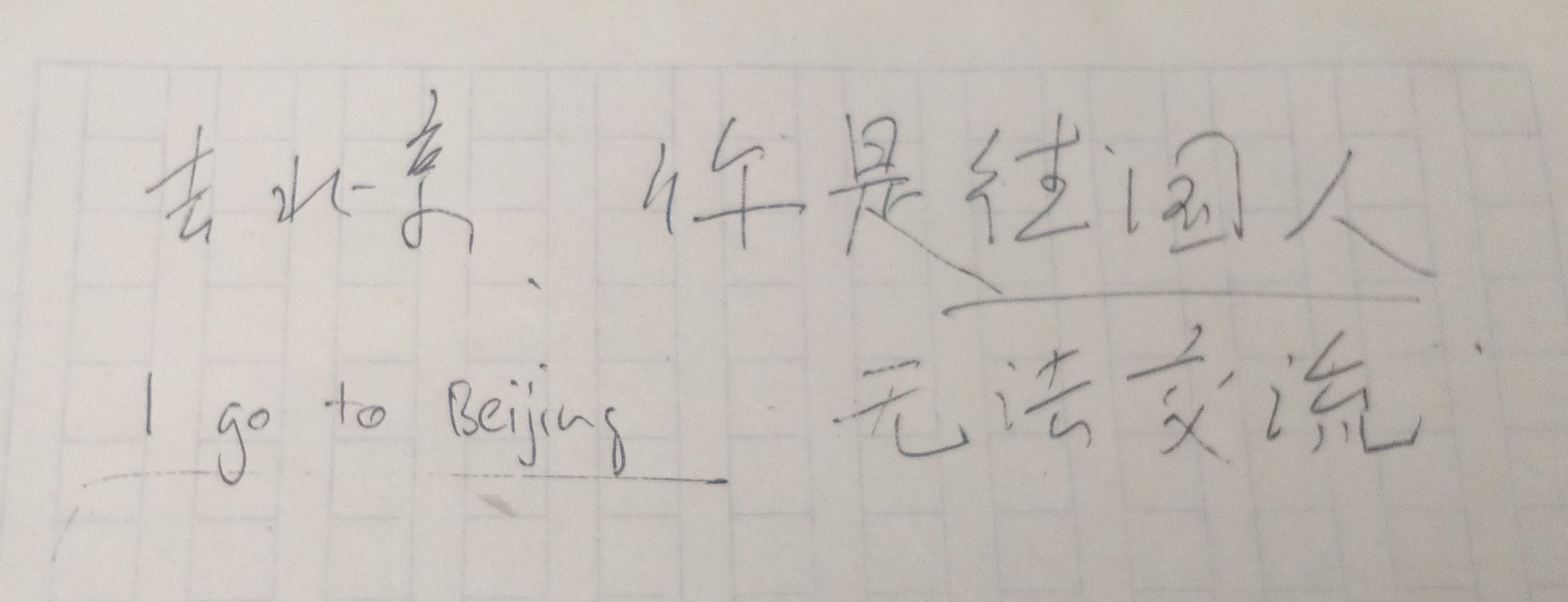
However, their open and interested attitude lead to talks until late at night, about work, family, hobbies and politics. It surprises me every time, how much of a conversation you can have with a shared vocabulary of three words.
Thumbs up
When Germans count with their fingers, they usually start with the thumb and then add finger by finger until 5. Then they use the other hand. In Central Asia people often start with the pinky and add finger by finger until 5. Japanese use the pointer for „one“ and then I don’t know the order. But it’s difficult. When they reach 5, they take the other hand and lay additional fingers on the palm of the first hand. I am sure they learn that in school. It looks like Karate when they do it. I always had difficulties to get the number with a quick look, though. It’s just so uncommon.
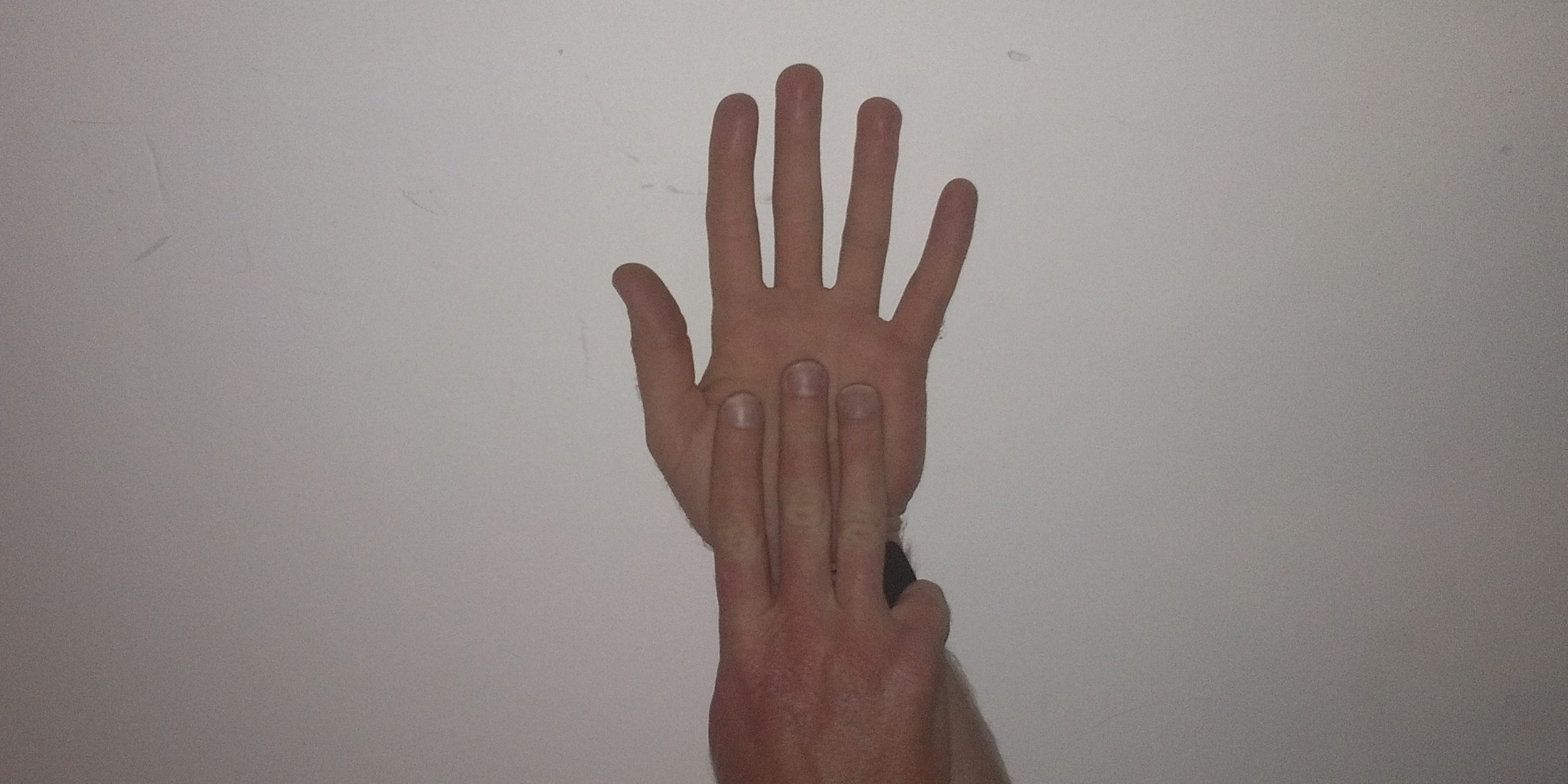
But the Chinese have the most confusing system: They start counting from the pointer. A four is all but the thumb. A five is all fingers. Then they keep the thumb up and start again with the pinky. So a 6 is pinky and thumb raised. I was never really sure how they do seven, eight and nine, because they don’t relate to the number of fingers raised. But ten is two fingers crossed – or a fist.
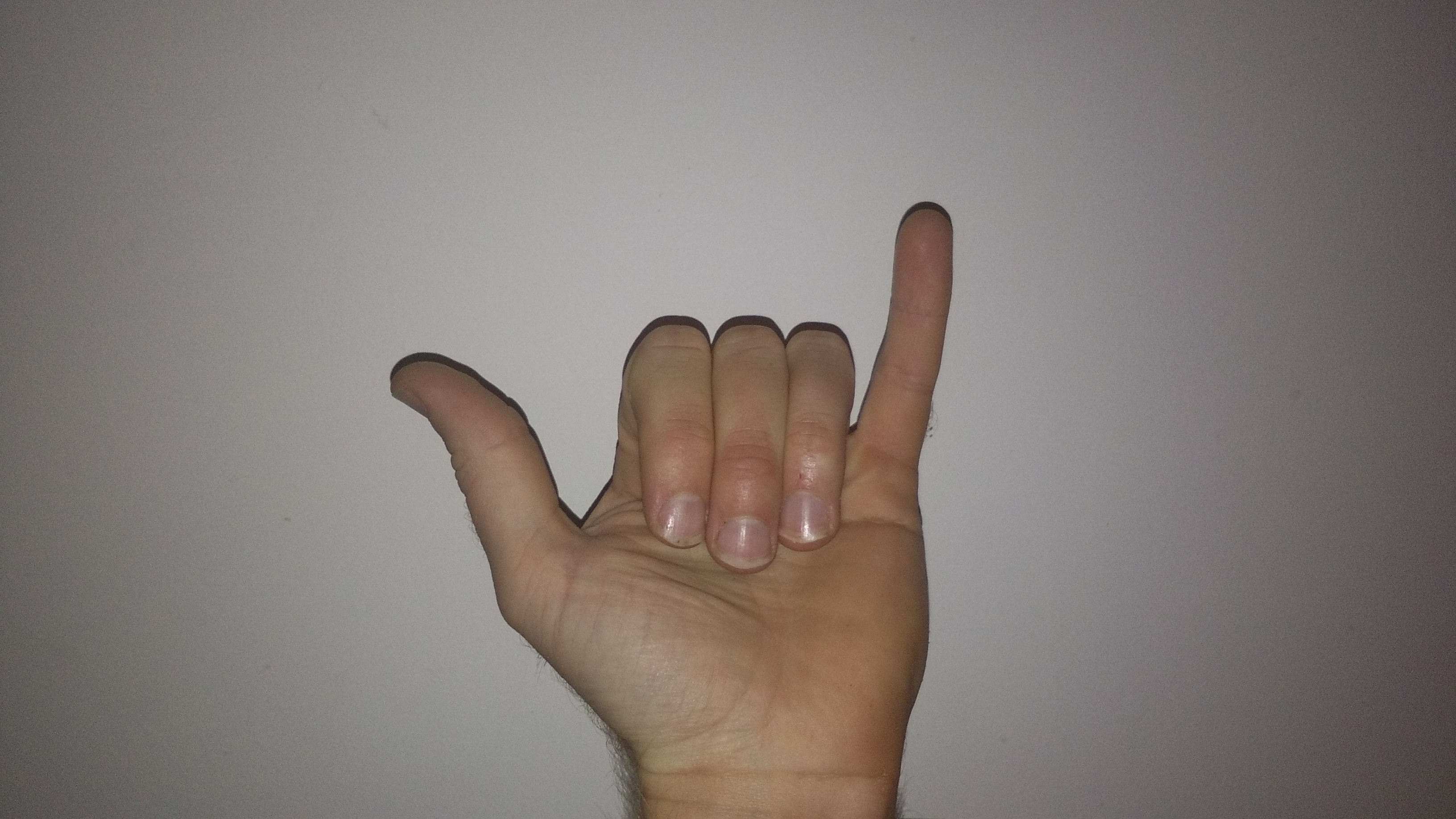
Cozyness
As I said, they don’t have a Bauaufsichtbehörde. So some towns look like they have been planned using Tetris. But it doesn’t end there. China often looks very pragmatic. That’s sad, especially since it seems to be not only a way of building, but also a way of thinking. Maybe part of the education. I mean there is a lot of money. People have smartphones, drive VW, Audi, Porsche, Toyota and Nissan. China is cheap, but not that cheap. But there is almost no art or any effort put in making something a little bit nice or cozy. Restaurants often have no decoration or an overall theme. It’s just tables and chairs. Then there are some fridges with vegetables standing around in the same room and that’s it. Often plastic chairs. The tableware (a spoon, a cup and a small plate) usually comes packed in plastic for hygiene. However, at a certain level staff wears uniforms, even though you wouldn’t expect that in such a place. Please sell the uniforms and spend some money on wooden chairs or some decoration on the wall.
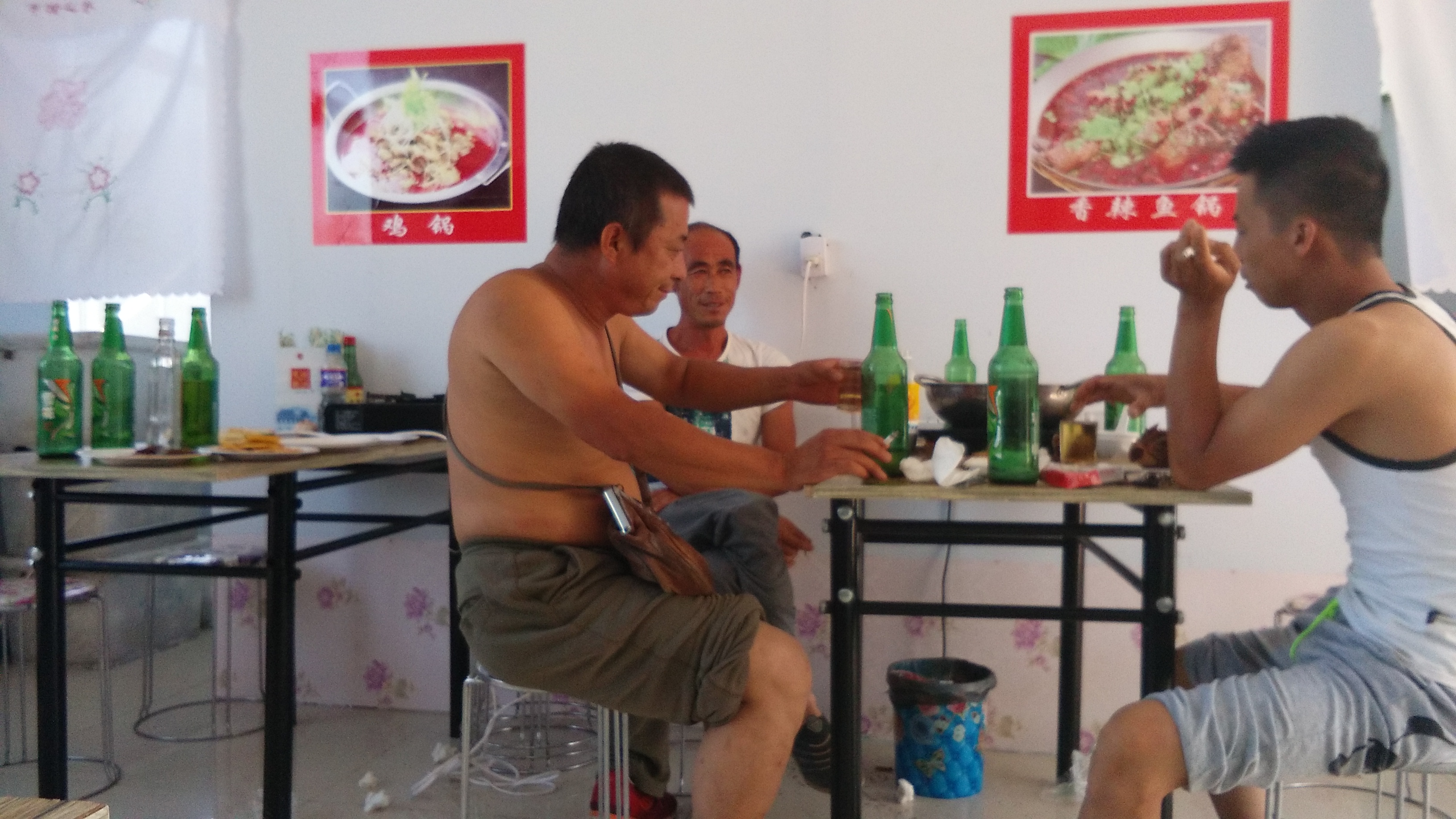
It is sad, because it seems Chinese look up to Europe and put all their money in VW, Audi, Porsche and Mercedes. I mean thanks, but why don’t they buy some nice chairs for the restaurant and put some images of Chinese landscapes or paintings of Dragons on the wall? I mean even the shittiest Kebab stall in Germany has a picture of Istanbul or Antalya on the wall. And yeah, it works, you almost feel like you are there. Of course not, but it shows what Turkey has to offer and that the owner is connected to it.
Of course you can find all the cozyness in Beijing. But I have been to other big cities – big enough – and I was surprised, that there was rarely a restaurant or a pub I wanted to go to. Probably one of the best was the Mongolian restaurant in Erenhot, but it wasn’t cozy either, it was just classy.
I could explain how a Chinese shop looks like, but I don’t have to. You just go to the next Asia Shop in your city. That’s exactly how Chinese shops usually look and smell. Racks packed with instant noodles and bottles of tea. Narrow aisles and this „Asian“ smell. It’s a herb or spice or additive. We don’t use it.
The places I liked best were some villages in Manchuria. They had little brick stone houses, nice gardens and the roofs reminded me on Japanese houses. I remember one village in particular, surrounded by corn fields and further behind beautiful brownish sand rocks and mountains. I wanted to stay there, but it wasn’t touristic and so there was no hotel or restaurant. And due to the corn fields there is often no place to pitch the tent. I hope these villages will stay like that. It would be great to have some nice cafes there and a little family run guest house.

Dirty Dancing
Chinese cities are often ugly and monotone, but as I said, the people are quite the opposite. They may not care about the interior of their restaurants, but they do a lot outside. People are working a lot. They are not laying around on divans or in the shadow under their huts. They are usually doing something. Cut trees, mow the loan, etc. For leisure they play card games or Chinese board games I don’t know the name of. Some also do sports, I even met some cyclists. Older people often sit together just outside the house and talk.
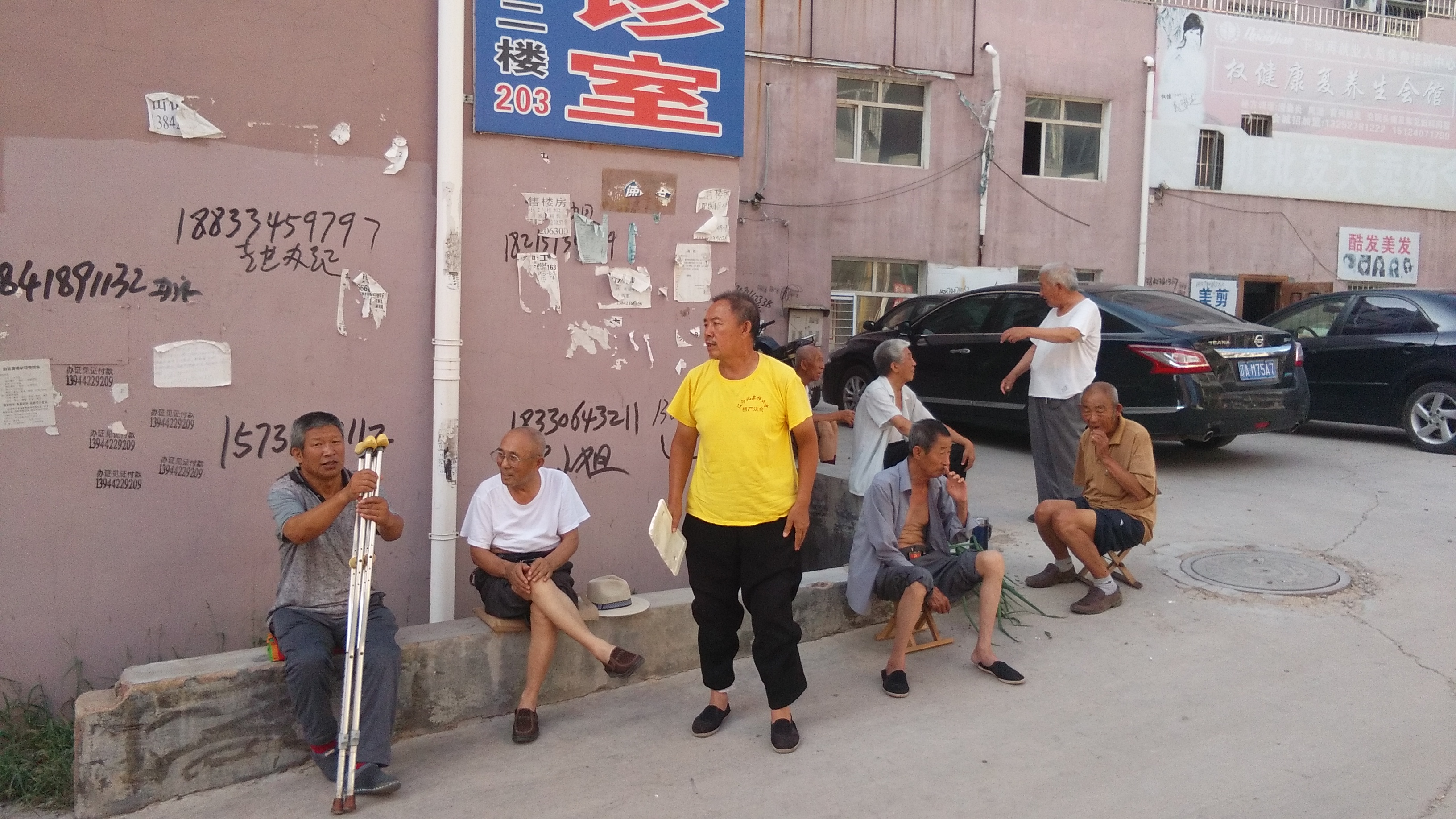
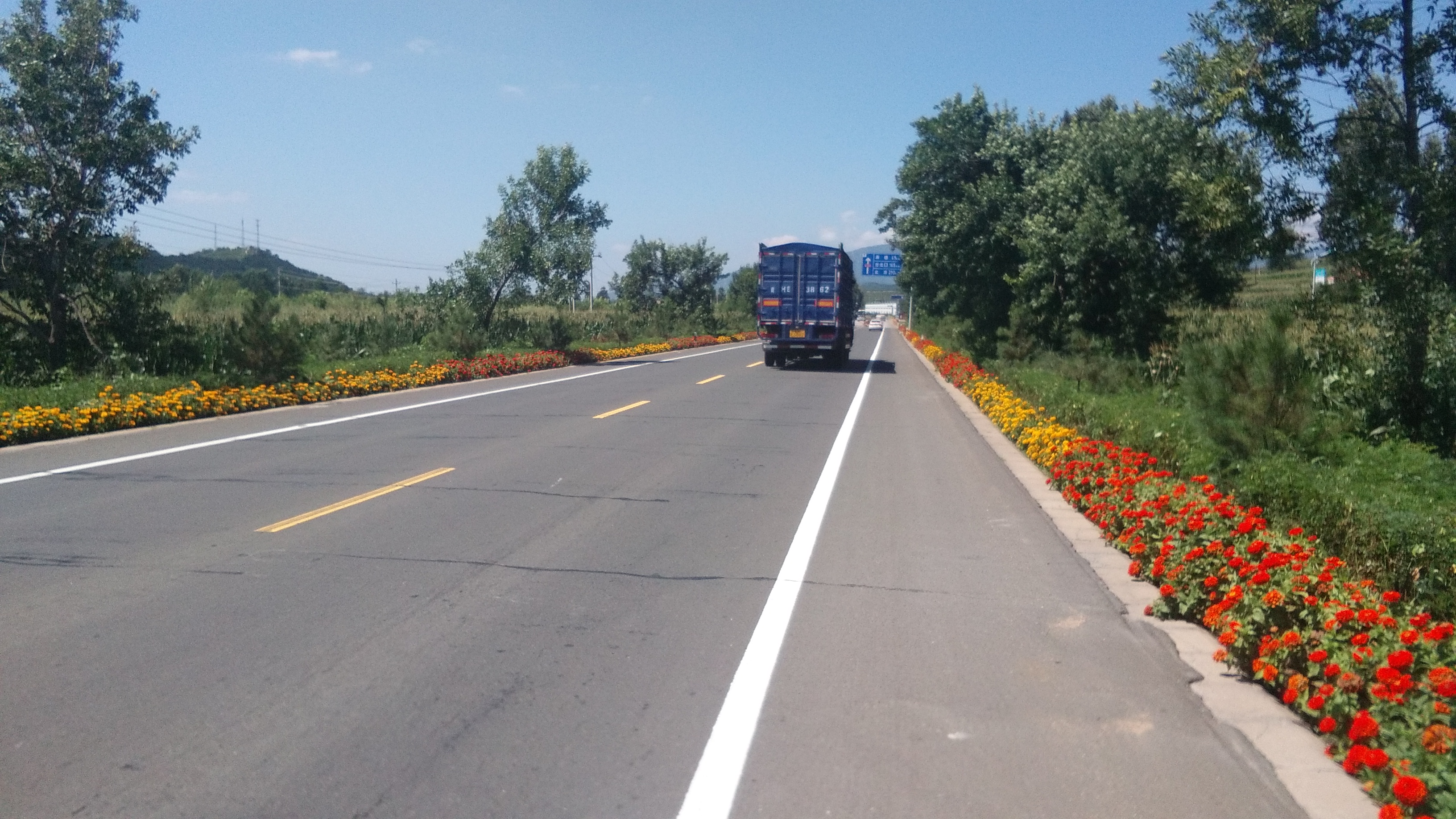
But I liked best that they are dancing publicly. In the parks in Beijing they were dancing rock ’n roll pretty well. On the dirty main square of some city in Manchuria they were group dancing till late at night. In Germany people sit around outside at such places and drink beer and talk. I haven’t seen many people drink in public here, but dancing publicly I have seen quite a few.
Public group dancing in Heishan
Developers
According to Wikipedia, China is a developing country. What? If China is supposed to be a developing country, then what the hell is India? I mean some parts of Eastern Europe have similar standards as rural areas of China. I was very surprised by how wrong China is often portrayed. How often have I heard sentences starting with „In countries like China or India“? From now on I probably won’t listen any further, because these two countries have nothing in common except a large population. But even that is different, because the overpopulation is much more visible in India than it is in China.
In China there are also no four armed gods standing around everywhere. I mean they have a Mao statue in some villages, but he has only two arms. China has perfectly maintained roads with cut trees every few meters. They have road signs, solar powered street lamps and cars. Yeah, cars! No horse carriage, no rickshaws. Sometimes you can even see hover-cars.
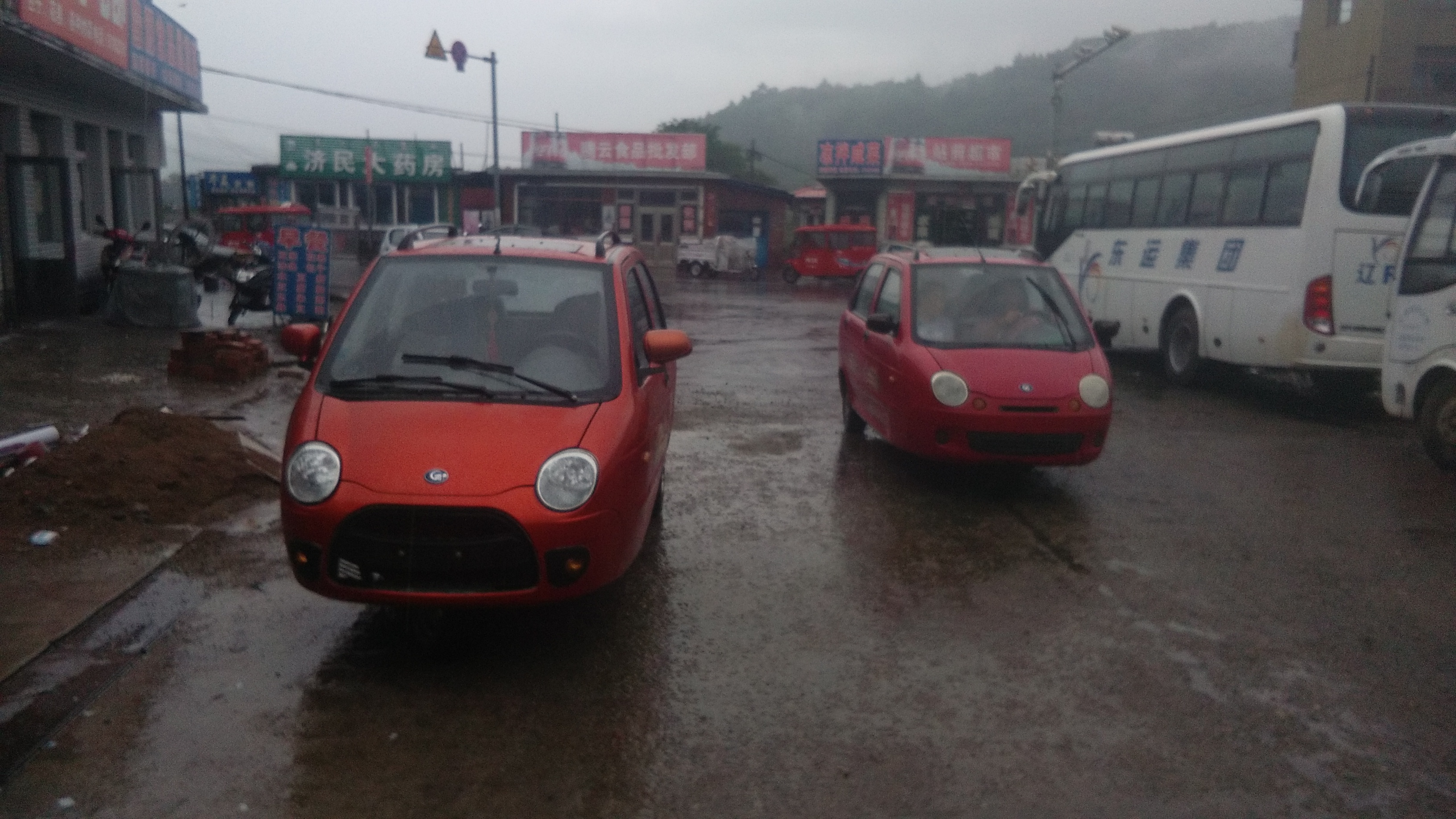
Usually hotel rooms are clean, have air condition, fresh sheets, towels, an in-room shower and a TV and can still be as cheap as 5 dollars. I have seen huge solar parks and wind parks. A lot of houses have solar water heating on the roof. 80-90% of all scooters are electric. Some cars are, too. People take care of trash. I mean even old people understand that this is important.
China has made a huge transition from one of the poorest countries of the world a few decades ago to what it is today. Recent topics in western media besides economical ones were Ai Wei Wei and human rights. But when you see a few decades ago China wasn’t able to feed its people and around 30 million just starved to death, then talking about free expression of an artists seems like the focus has shifted quite a bit to less severe problems.
China is famous for plagiarism. But it not only has „NIAEV“ creme and „Sienems“ light switches. It also copied a good part of German law. My experience was, that Germany has a very special and good reputation in China. And that wasn’t limited to German brands.

From what I saw, I got the impression China tried to solve problems by copying things that already work and by using unusual measures like the one child policy to stop a sociopolitical down spiral quickly by using political force. It is hard to say if there were any alternatives. The outcome in my opinion is not the worst. But in this process, China became pragmatic. That’s why I was very disappointed at the beginning by the fact, that I was hardly able to find a Chinese identity. Maybe because China is a country you already know as a child and somehow you add some images to your imagination of this country. It has so many cultural and historical aspects that every child knows. Also movies paint a picture of an old, traditional life. However, none of this was visible to me. Most of the time China looked soulless from the outside.
I was often thinking about my former flat mate Chao. We lived together in Ulm in a shared apartment with six others. Chao’s father probably grew up in total poverty. Chao sometimes showed up at our parties, but didn’t really fit in. It could get pretty awkward, since he didn’t get the social context sometimes. But that wasn’t his focus anyway. His mission was very clear: Success. Everyday he got up at 6 am, went swimming for an hour or two, then went to university to work on his PhD thesis. He was a Biologist. His English was hard to understand. He regularly ate pig ears and chicken feet and some flat mates complained about the smell of it. I never met him in a pub. He got easily drunk after only one beer anyway. When he moved out, I asked him to cook something Chinese. He spend the whole day in front of two hotplates and prepared ten different dishes for all eight of us. He was a good chef. He moved out, when he got his PhD and a job in Chicago. In a way I now understand better who he was and why.
In my opinion, China is missing an overall cultural concept like Japan has and that’s sad, because China once had such a huge impact on Japanese culture. China seems young, as if someone just build it. Only the rural areas felt sometimes like they have always been there. A lot of other towns and villages seemed like they have just been put there to have living space for factory workers.
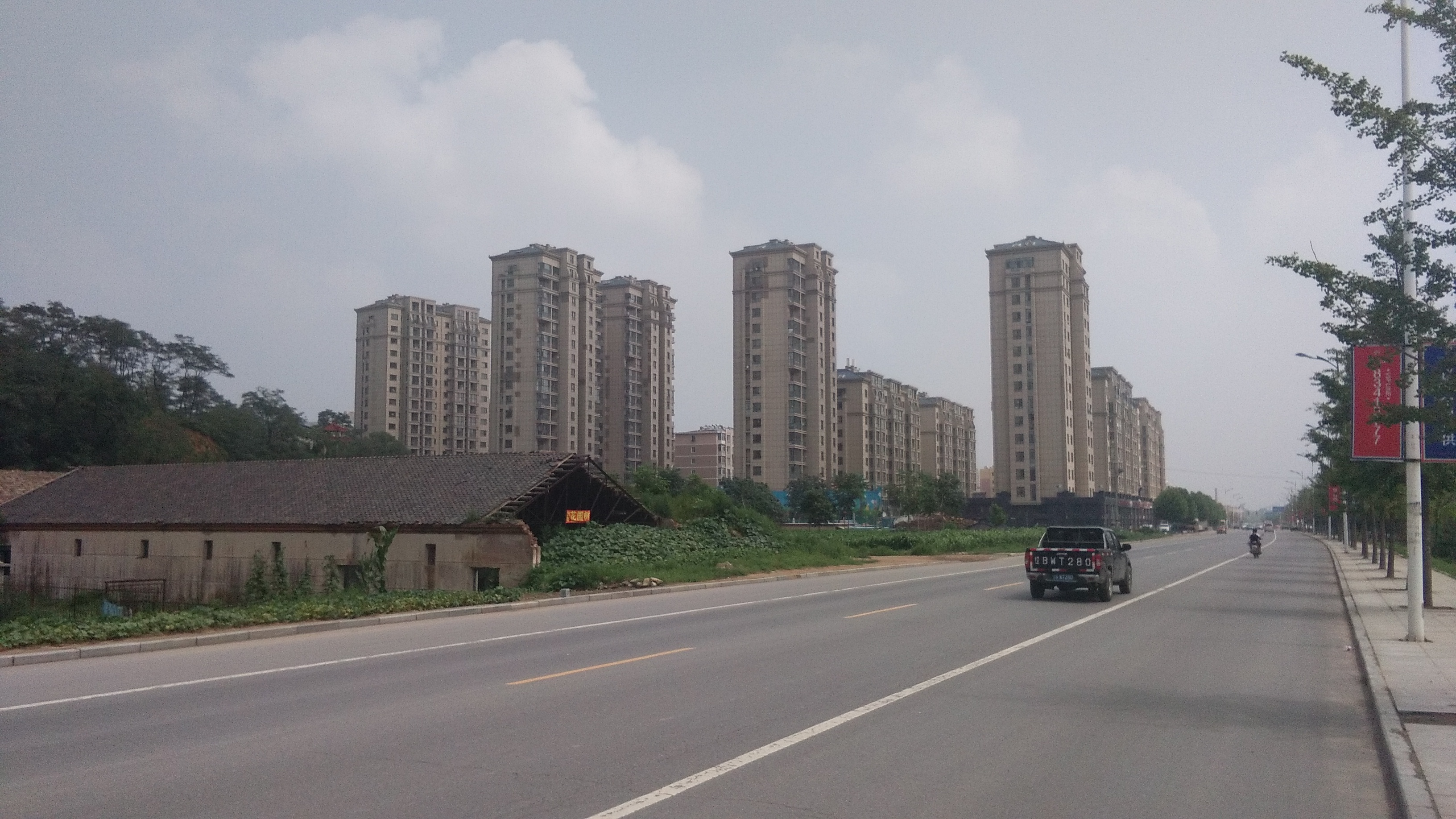
It is a huge empire with a long history that somehow lost touch with itself. Isn’t it absurd to build another copy of the Neuschwanstein castle or some imitations of mediterranean towns? Where is China in all of that? I was missing a Chinese touch in so many places. And the Chinese influence would be so important even outside of China. After all, they share a big part of culture with South East Asia and Japan. But only China is big enough to promote this culture among other world powers.
It’s good that we talk about Ai Wei Wei instead of starving people. And maybe only the artists are the ones that can truly transform China and form a new and strong cultural identity. It will certainly take time.
Made in China
This term has long been a synonym for lowest quality. But things have changed. My smartphone is made by VIVO, a Chinese brand. In Germany we rather know Huawei, but the VIVO is pretty well made, too. I bought it in India. The tent we have used on this journey has the logo of a Swiss company, but is made in China.
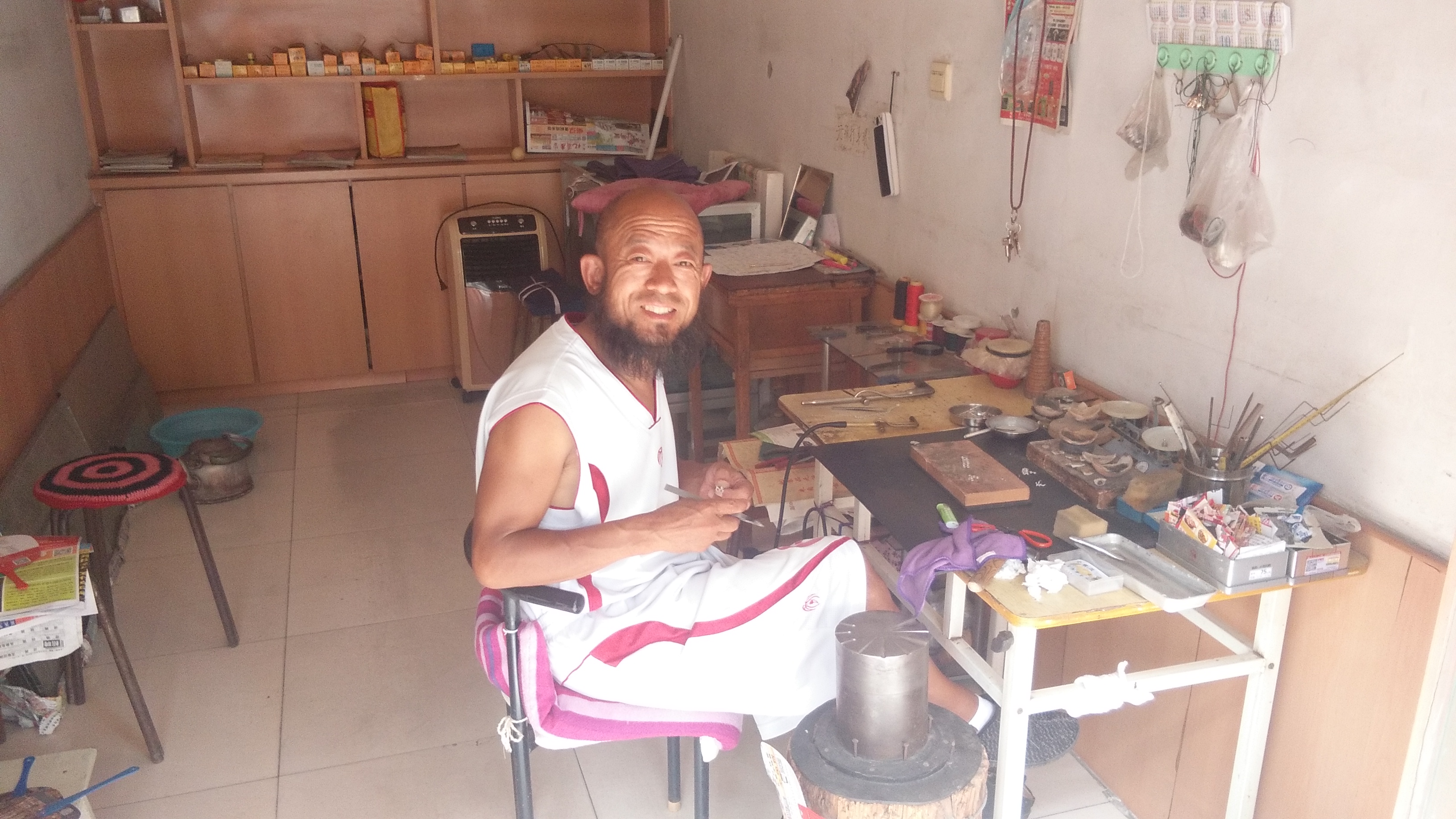
A certain prejudice towards a country can stick to it unreasonably long. That can be devastating or a huge chance. China’s development is clearly visible and is only covered behind the outdated view of this country in other people’s minds.
Crouching Tiger Hidden Dragon
The name „Crouching Tiger Hidden Dragon“ is a literal translation of the Chinese Idiom „臥虎藏龍“ which describes a place or situation that is full of unnoticeable masters. It is from a poem of the ancient Chinese poet Yu Xin’s (513–581) that reads „暗石疑藏虎,盤根似臥龍“, which means „behind the rock in the dark probably hides a tiger, and the coiling giant root resembles a crouching dragon.“
Today behind the rock in the dark is usually no tiger hiding. And the coiling giant roots didn’t resemble a crouching dragon to me. But after all I have seen, the will of the people, the progress and what they have already achieved, it seems to me like China itself is a crouching tiger and a hidden dragon.
